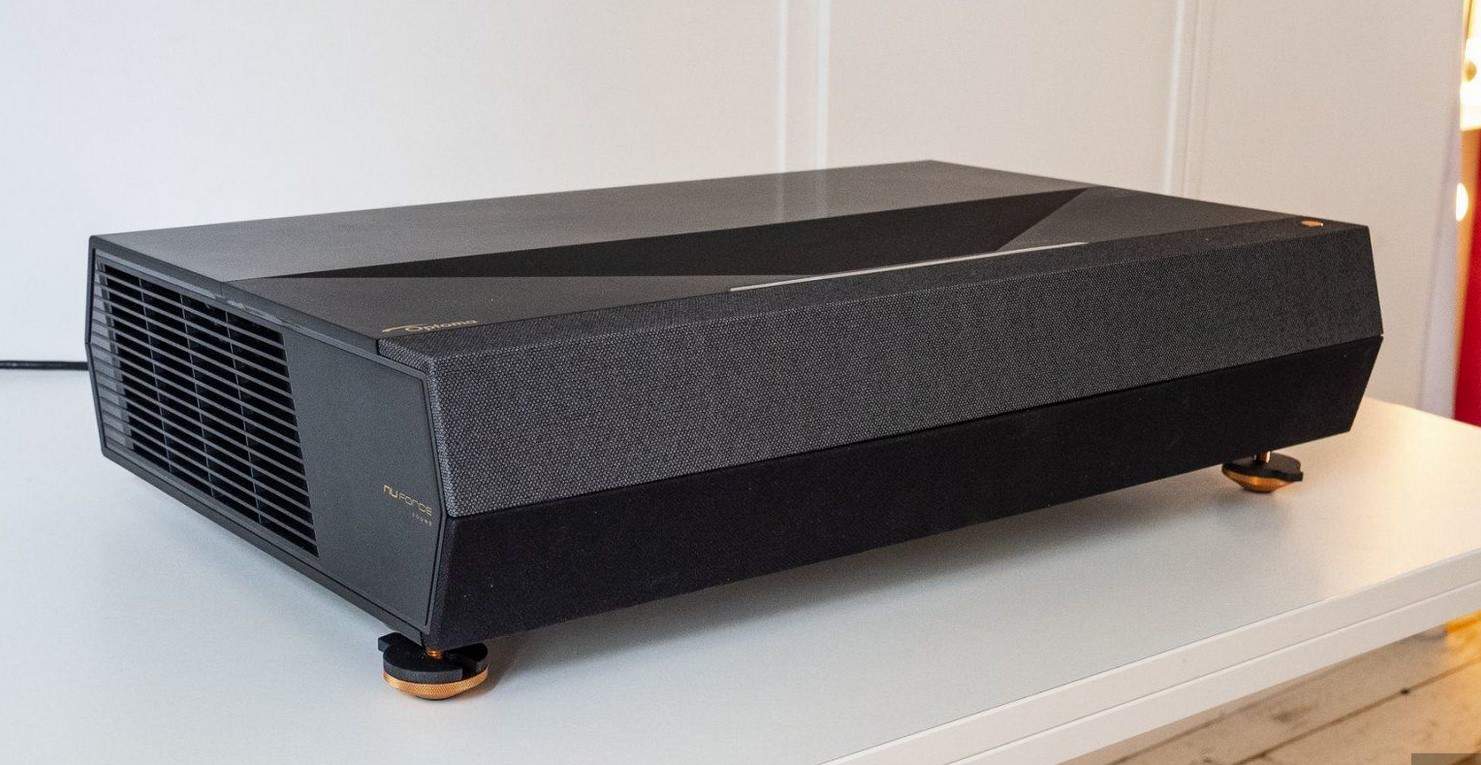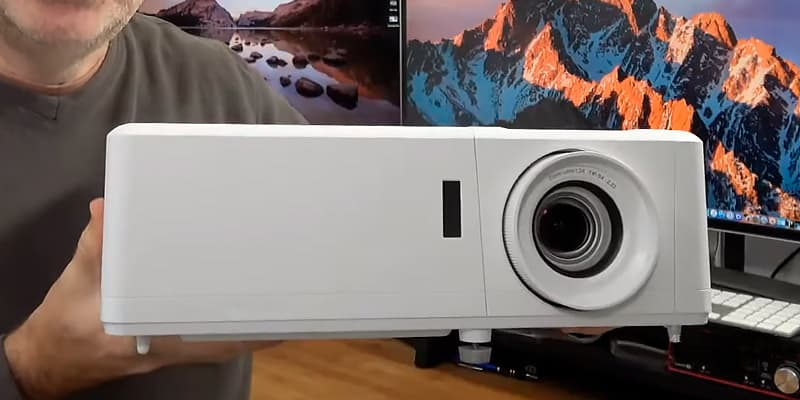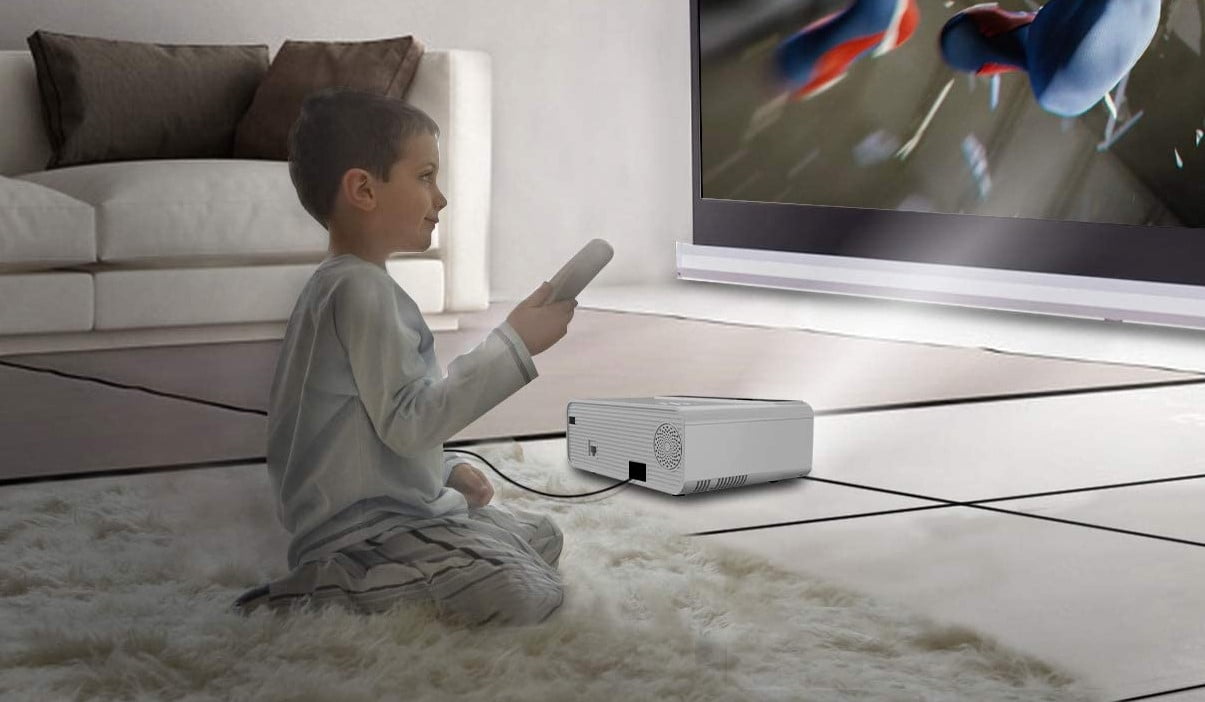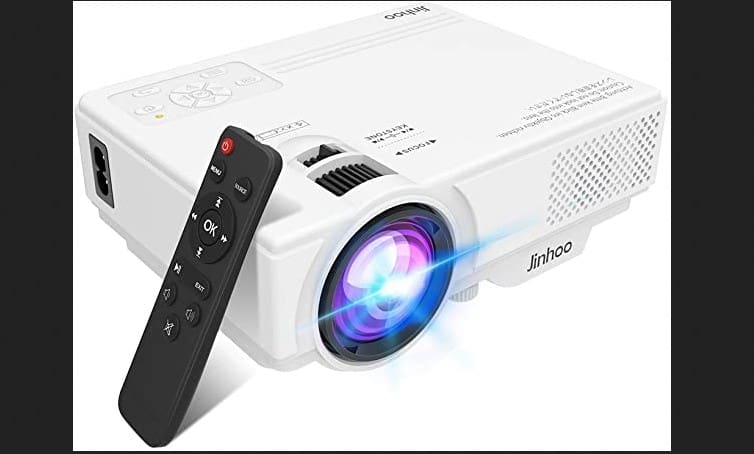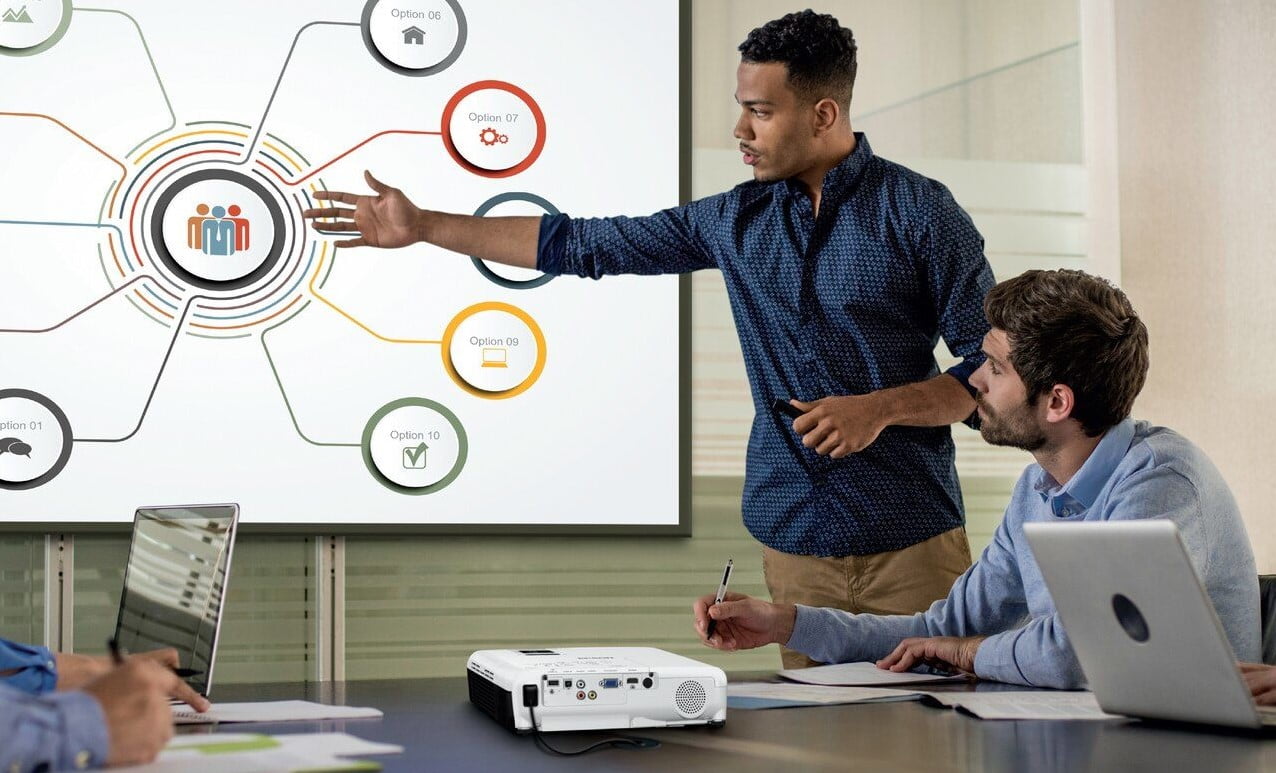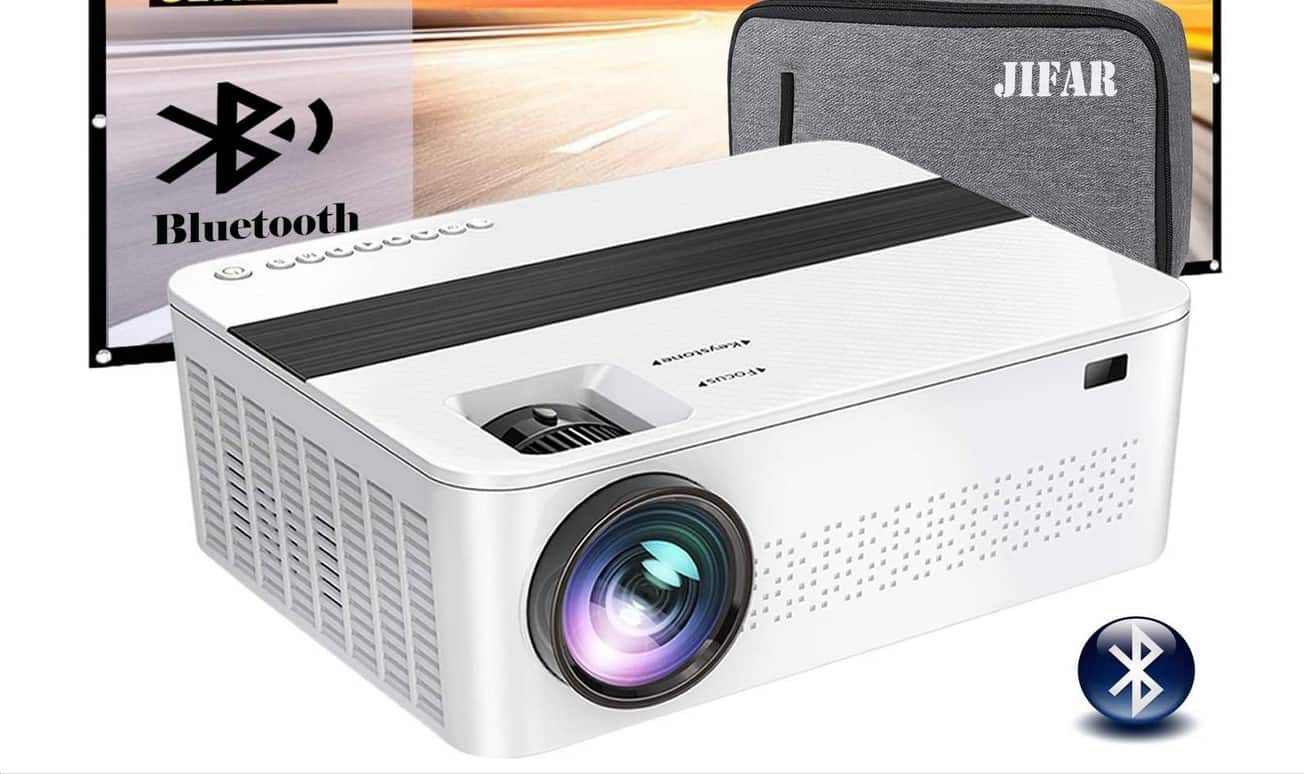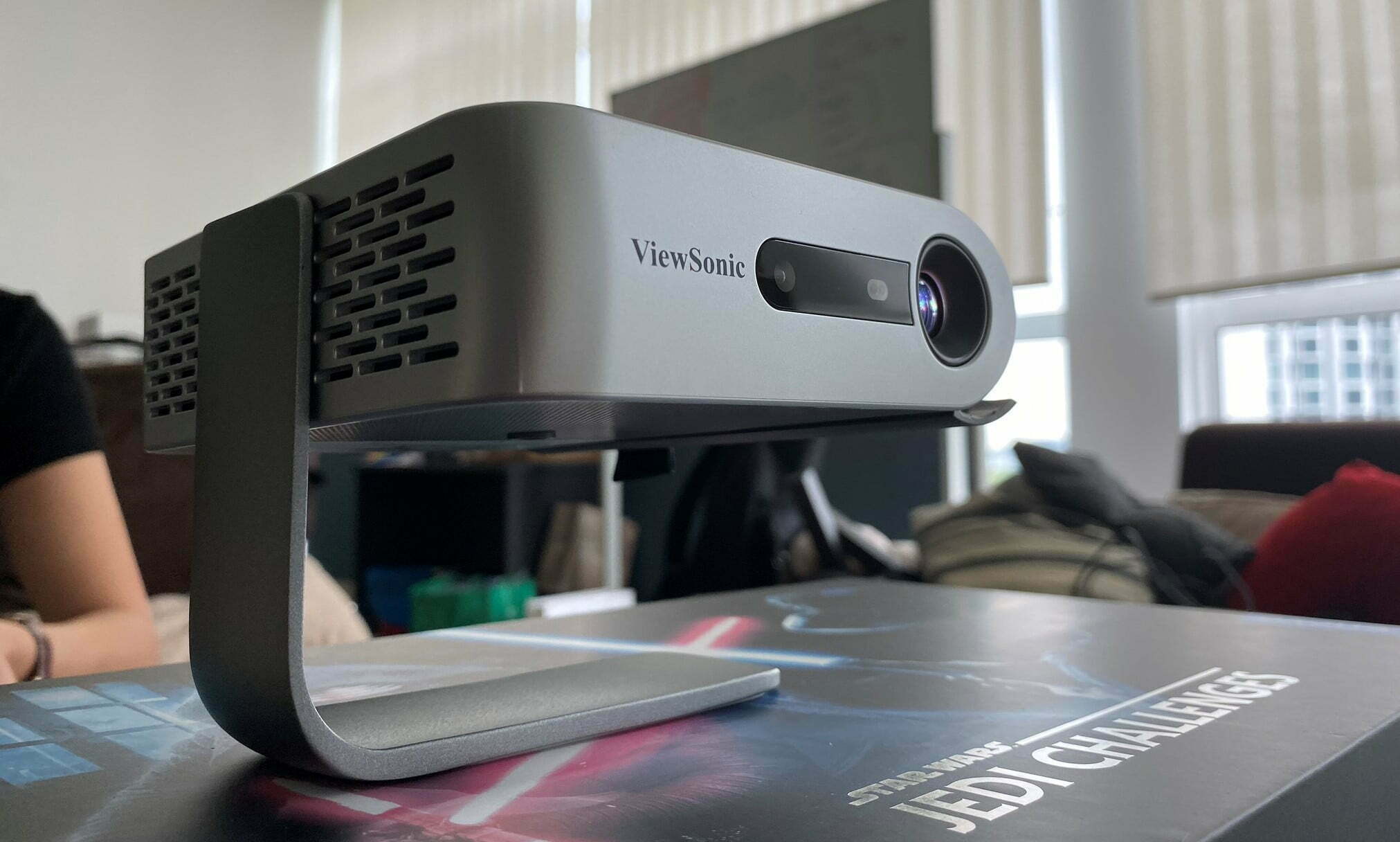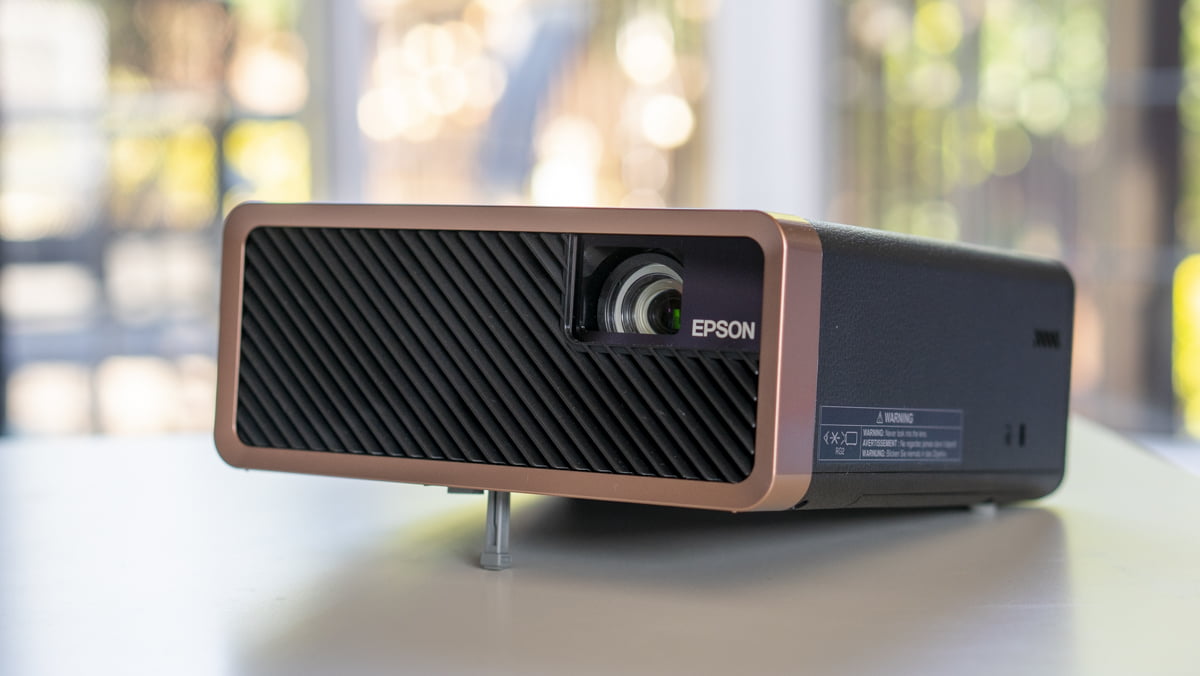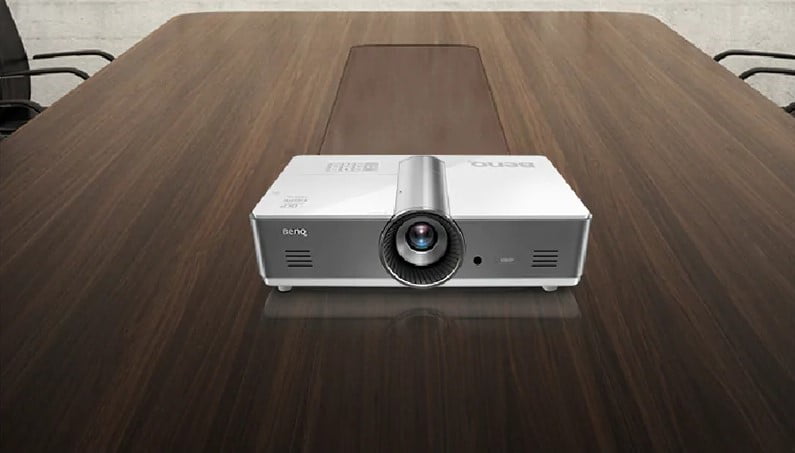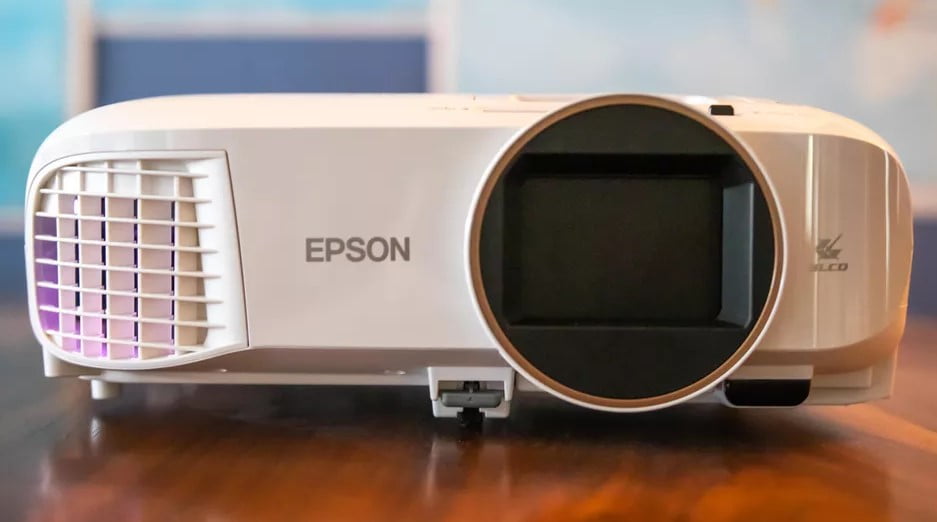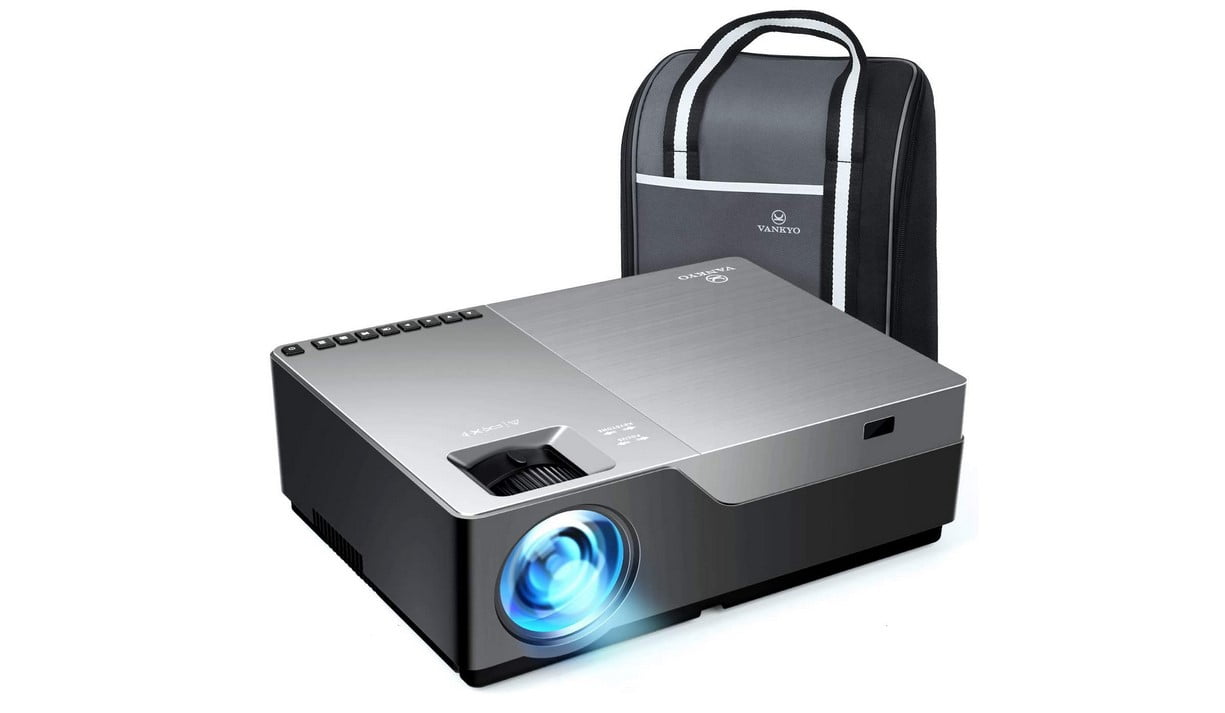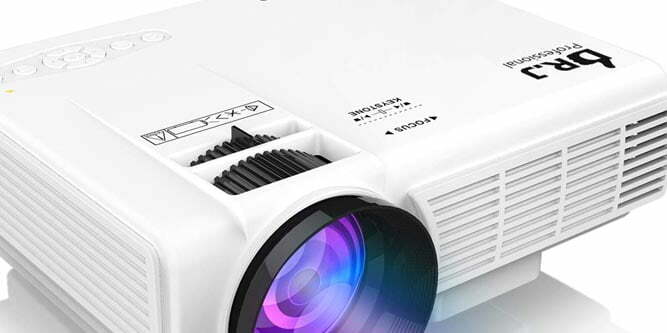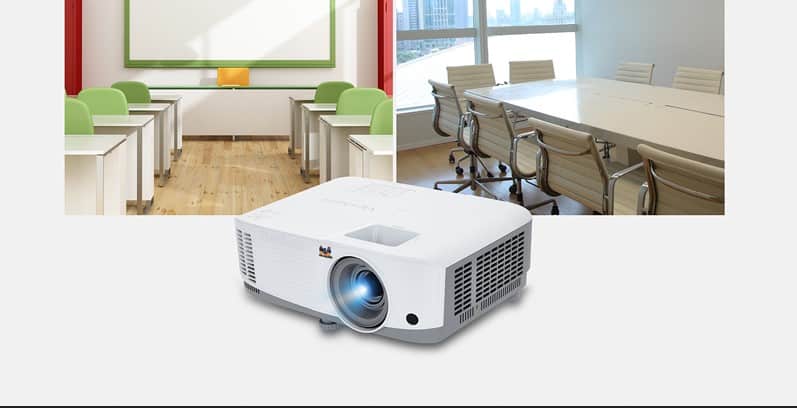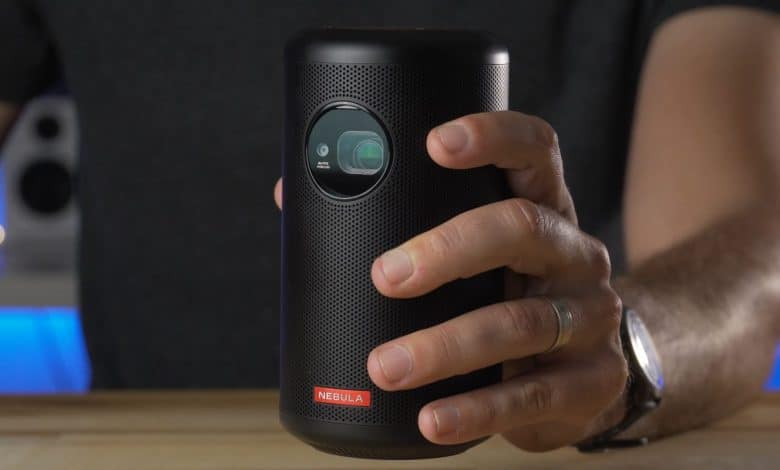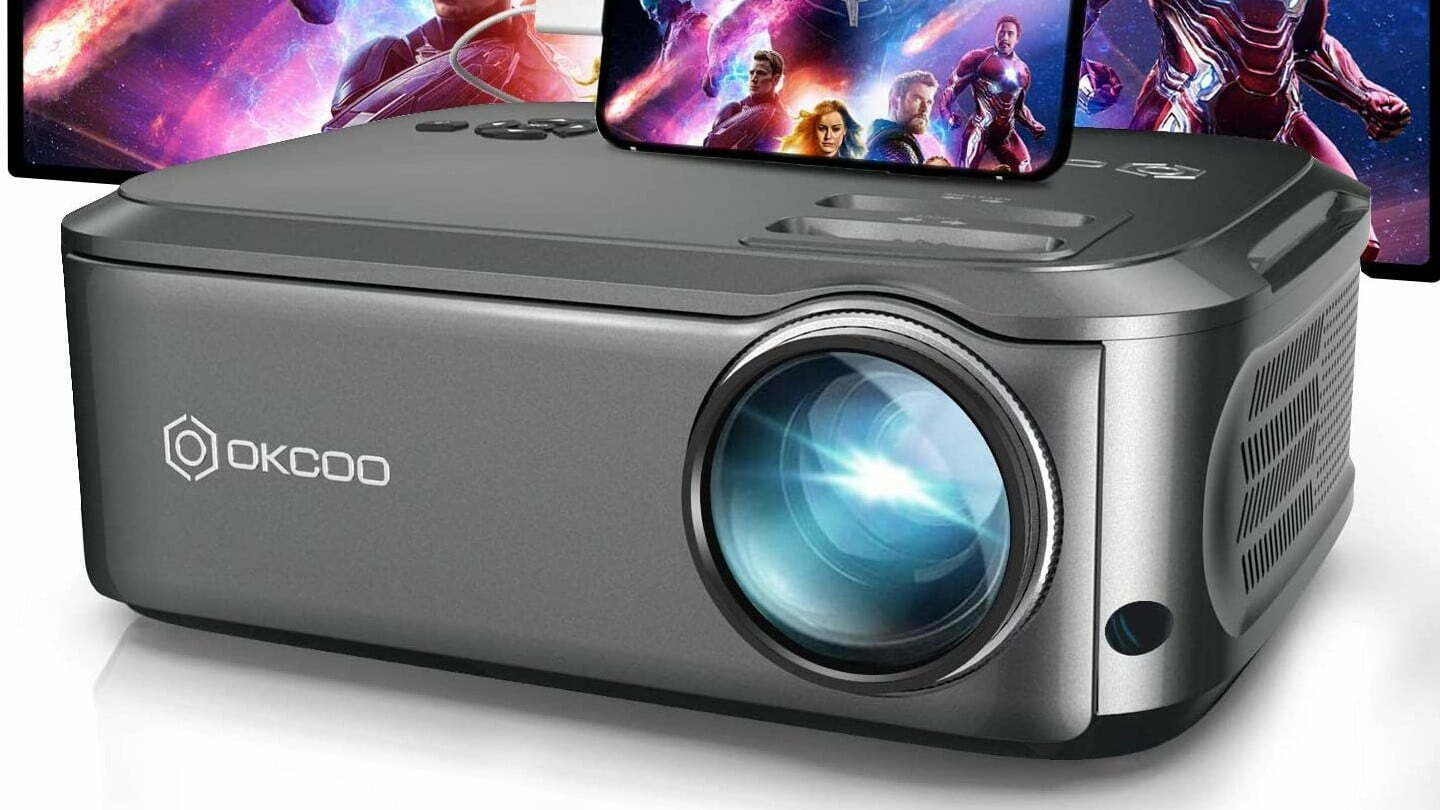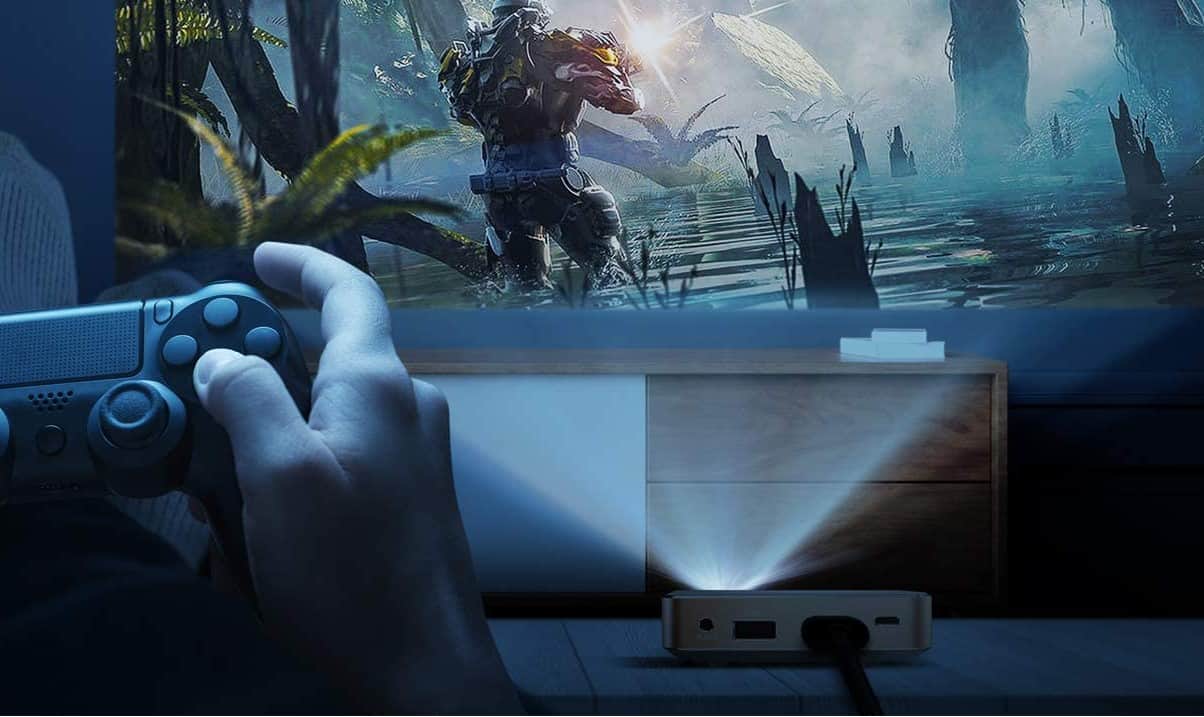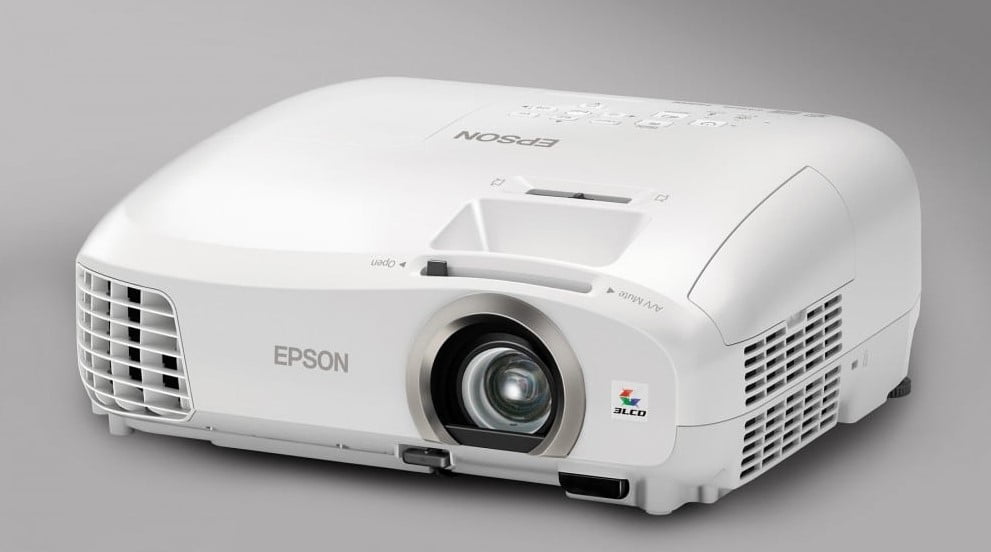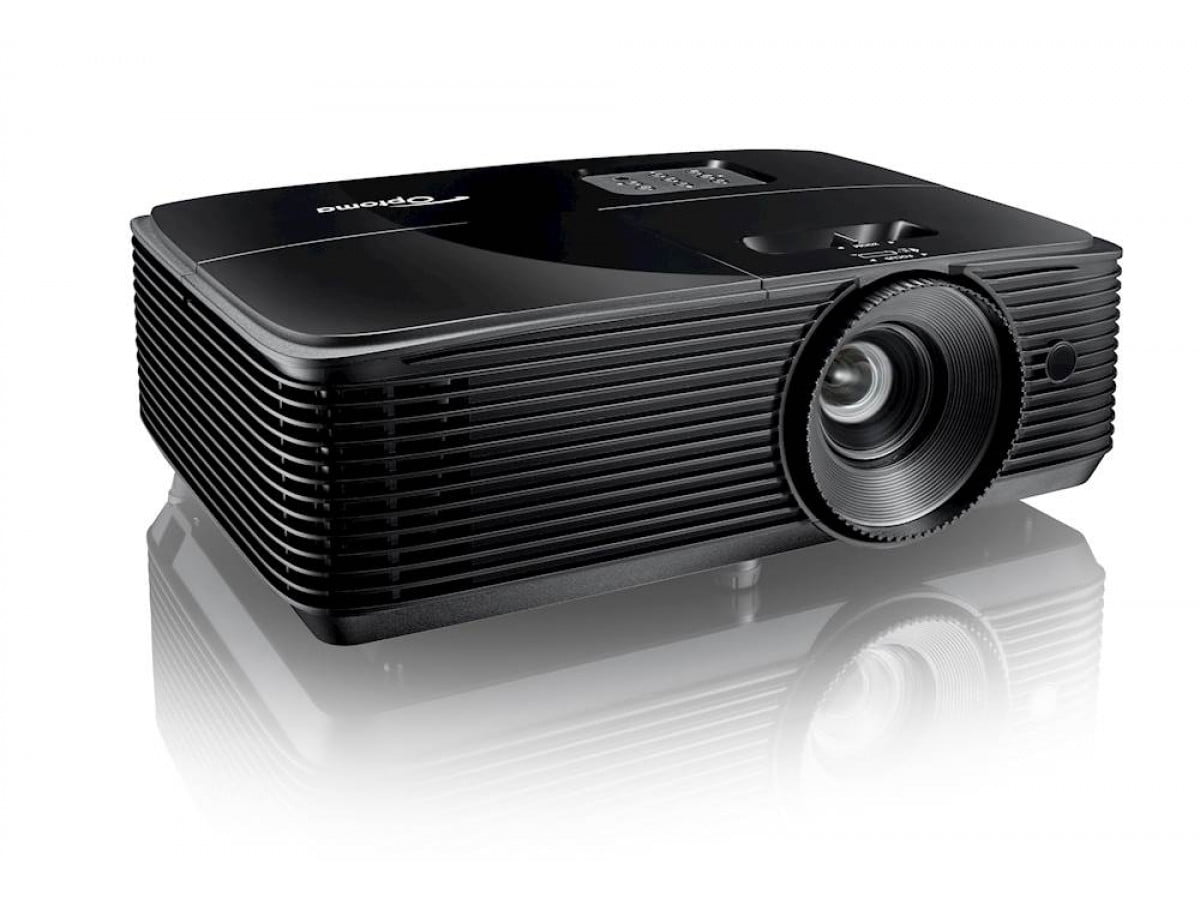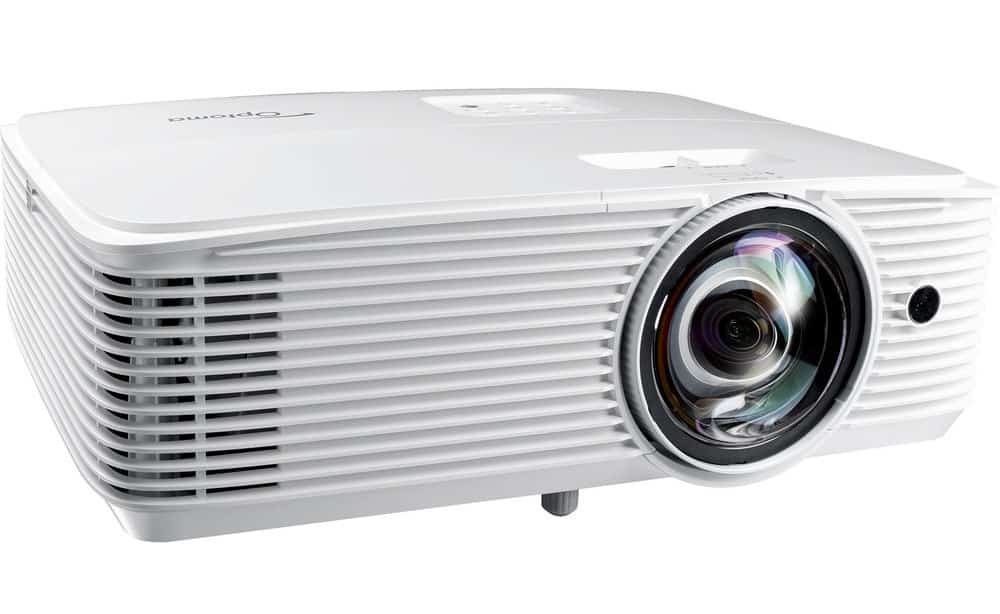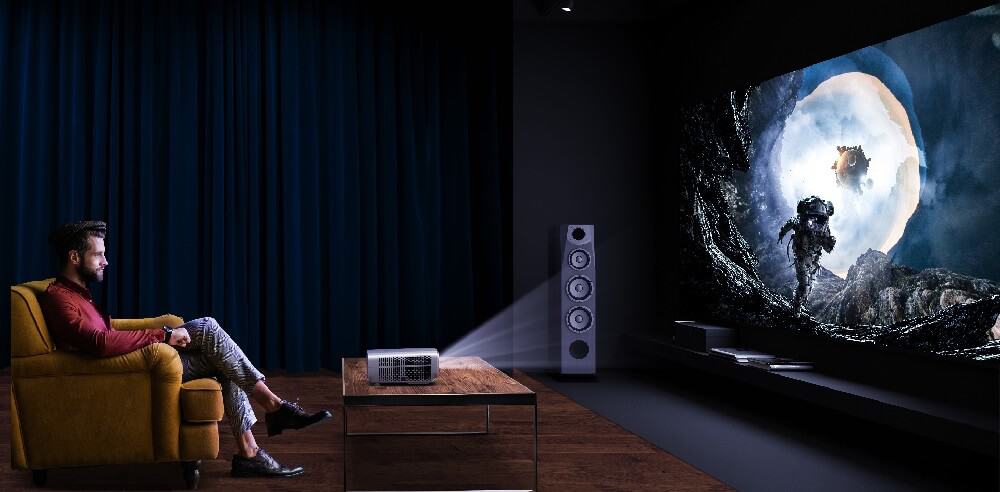When choosing between an outdoor TV vs. a projector, or a TV vs a projector for a classroom, there are several factors that should be considered, including the necessary screen size, image quality, and brightness. Additionally, you will need a device that can withstand the weather and ambient light in outdoor spaces. The best projectors and TVs offer a combination of benefits, though the two often should be used in different situations, both can be used with an HDMI input. Read on to find out more about your choices.
KEY TAKEAWAYS:
- Outdoor TVs provide increased brightness, durability, and reduced glare for users in their backyards or on their patios.
- Projectors use backlit panels, color filters, or spinning color wheels to create the image on the projector screen. You’ll want to know how many lumens an outdoor projector has before you buy.
- Outdoor TVs may provide a majority of advantages over projectors, but they do not currently have as wide a range of screen sizes.
Projector vs. Outdoor TV
Both projectors and outdoor TVs provide valuable options with excellent picture quality for you if you’re looking for an entertainment device to use in an outside space. You will likely have to choose between a DLP vs. a 3LCD projector. However, you may find that a 3LCD projector will work well for outdoor use because of its excellent color accuracy and contrast. In that case, make sure you pick up a leading projector stand to mount it on. If you choose to go with a TV, you will need to look for a designated outdoor TV rather than a standard indoor one. Make sure you get a TV with HDMI ports to watch your favorite Blu-Ray or play games. To find out the differences between an indoor and outdoor TV, continue reading.
Insider Tip
If you are looking to use it during the day, an outdoor TV provides excellent brightness and color.
What Makes an Outdoor TV?
Most consumers use their televisions inside the house, but there are those that use them outside if the weather is right. As a result, some brands make outdoor TVs that typically have higher brightness and power and increased damage protection. One brand claims that their outdoor TVs are 50% brighter in their image compared to indoor TVs. Additionally, these TVs are designed to include reduced glare from ambient light to reduce the effect of sunlight. Many of these outdoor devices can handle more in terms of weather, humidity, and dust than their indoor counterparts. You may want a TV with multiple HDMI ports at a reasonable price.
How do Projectors Work?
Projectors create images by shining light through color filters, color wheels, or display panels before projecting them through the lens. The three most common types of light sources for these devices are projector lamps, light-emitting diodes (LEDs,) and lasers. Digital projectors that use LEDs or lasers do not take time to warm up and can be used right away. Additionally, they traditionally have higher brightness levels and color accuracy, and contrast than lamp-based models. For an outdoor projector, you will likely want a quality laser device, since these offer a brighter image. For additional information about the two most common lighting types, check out laser vs. lamp projectors.
TV and Projector Screen Sizes
The ability to purchase a large screen size remains the main advantage of an outdoor projector over a TV. Although TVs are getting larger, most TVs do not surpass 85”, and a large TV has a high price. Projector screens that are 100-120” diagonally are the most common, though you can get larger or smaller versions. If you are looking to have a backyard movie night or viewing party with many people, you likely will want a projector screen with more space so everyone can comfortably see the image. You may get away with using the back of your house, a van, or another solid surface as the backdrop for your viewing.
How Does Weather Affect a TV or Projector?
Despite the fact that some brands sell TVs designed for outdoor use, many still expect your TV to be under a cover or in shade and don’t exclusively consider bad weather. So, if you do not want to use an awning, you will need to find out that explicitly states it doesn’t take sun damage. Unlike an outdoor TV, a portable projector can be set up and moved when you are interested in using them. You may find that this portability allows you to keep the projector out of any bad weather.
Warning
Some projectors may require a screen, but you often can use the side of your house or a solid wall as your location.
F.A.Q.S
How many lumens does an outdoor projector need?
If you are planning to use your projector throughout the day, you will need a high lumens output, like those found in laser projectors of 3,500 or more. However, you may not need the same brightness if you are using the projector at night since the sun’s ambient light does not affect it.
What should you look for in an outdoor projector?
You should consider projectors with exceptional brightness that are compact. You will also want a high resolution and color saturation.
What are the pros and cons of outdoor projectors?
Outdoor projectors include sizes much larger than outdoor TVs, but they lack the level of brightness necessary for watching shows during the day. Additionally, projectors should not be left outside while not in use.

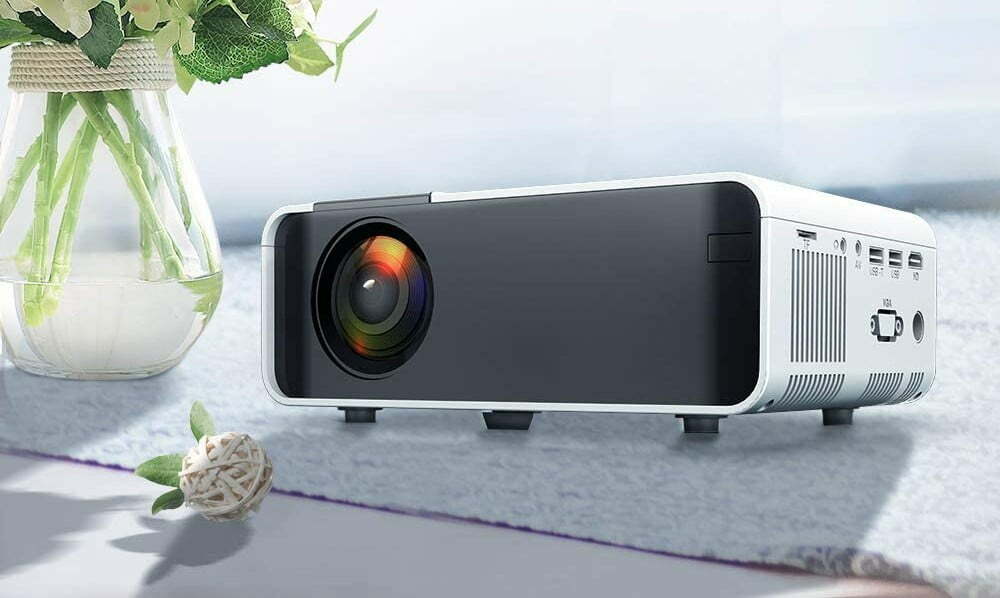














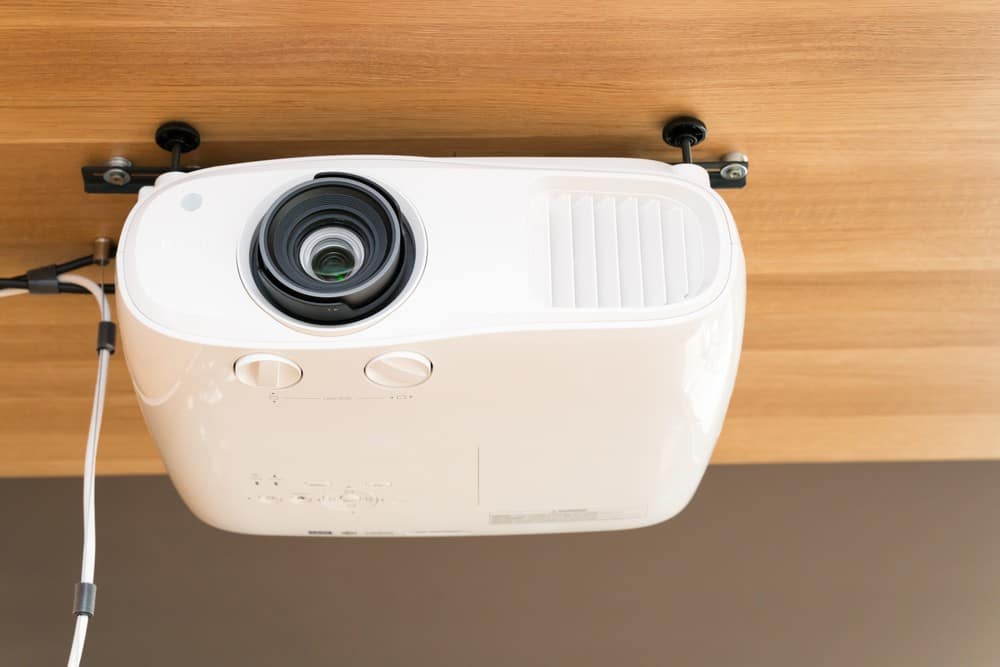
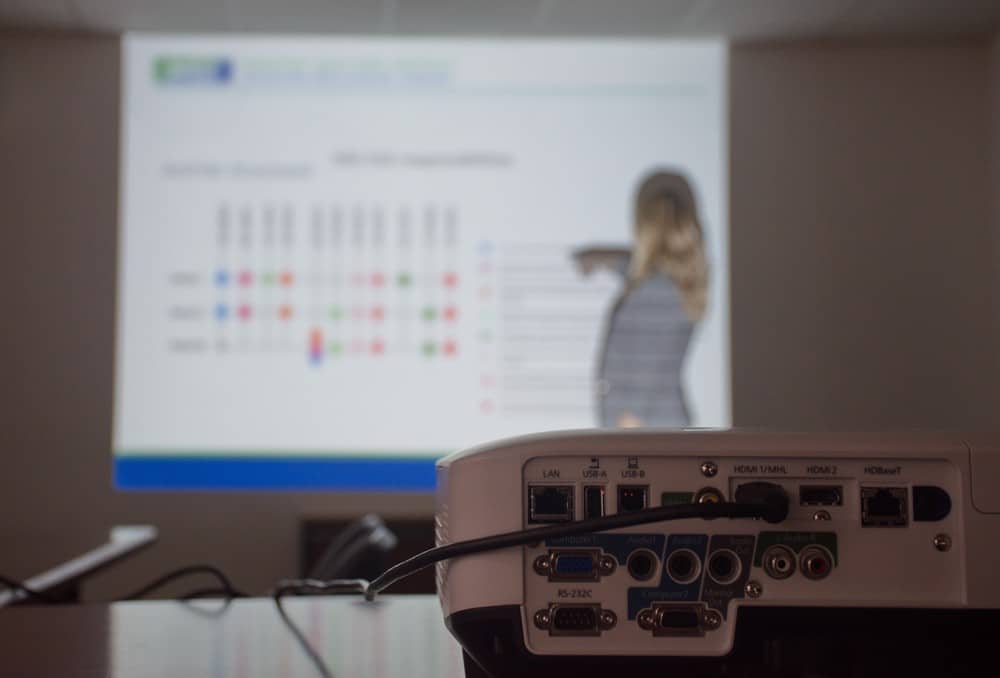
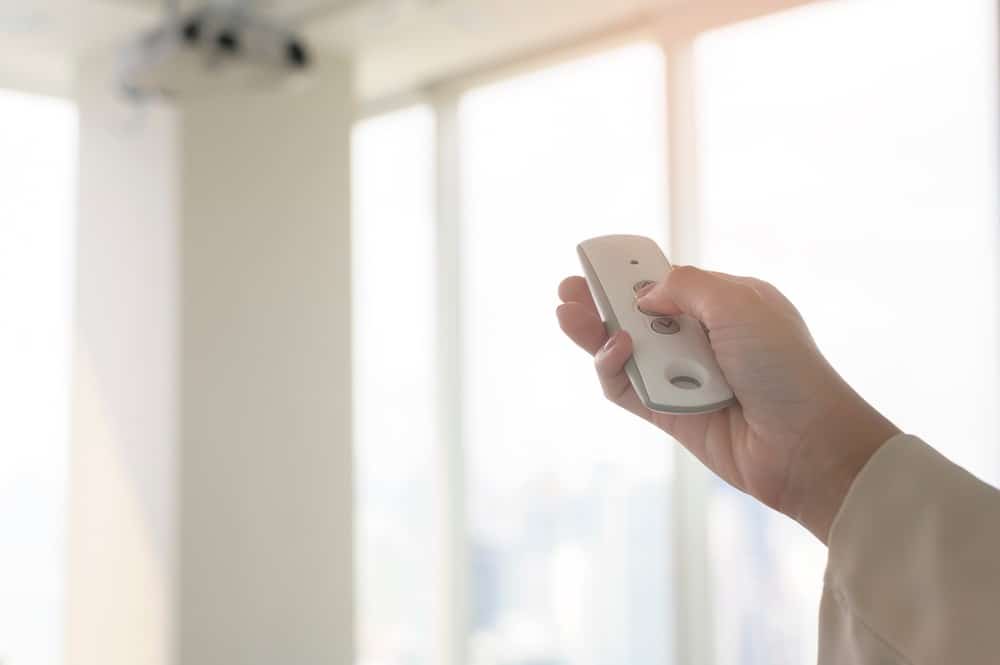
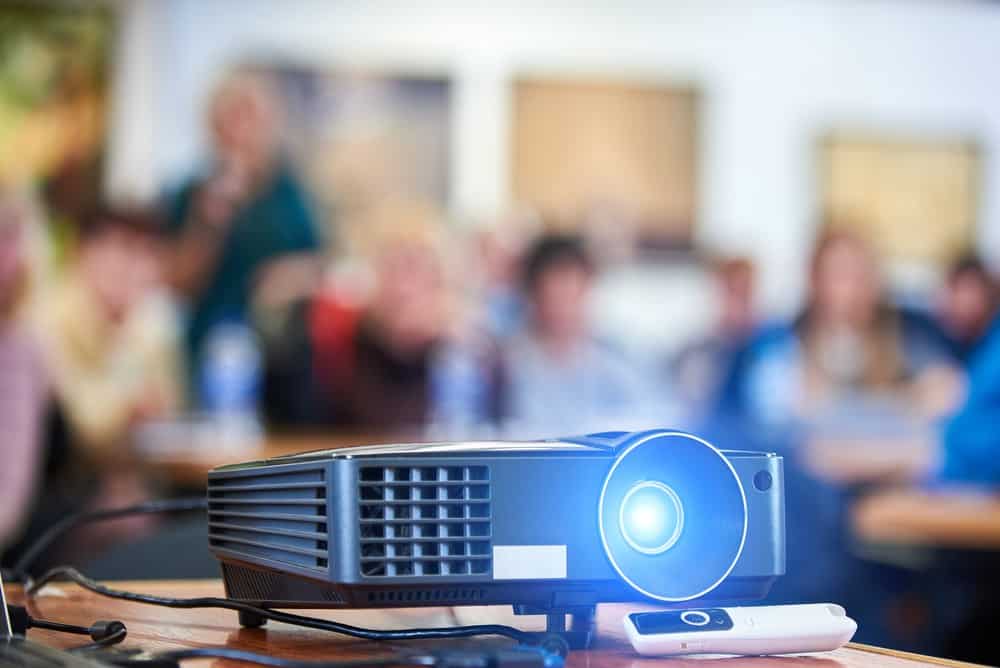

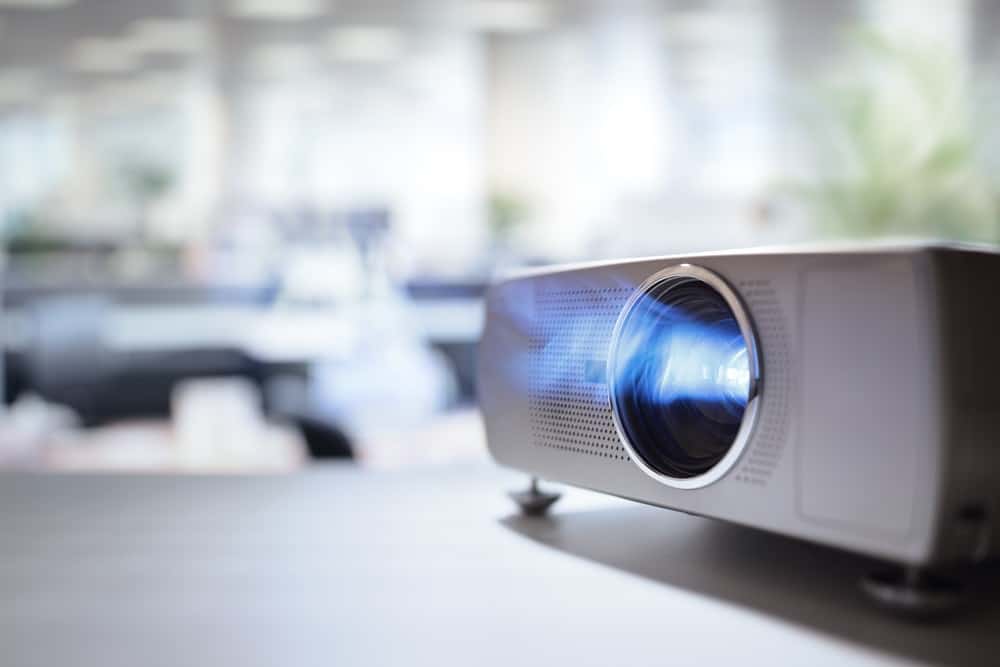
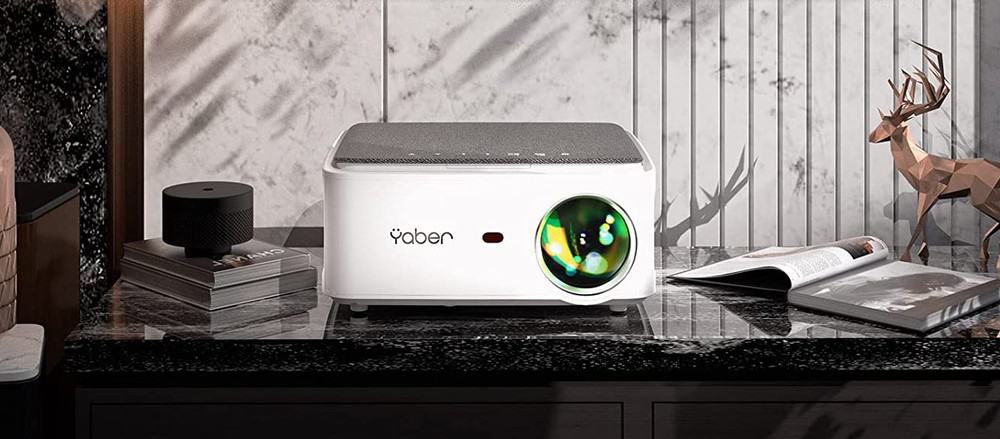
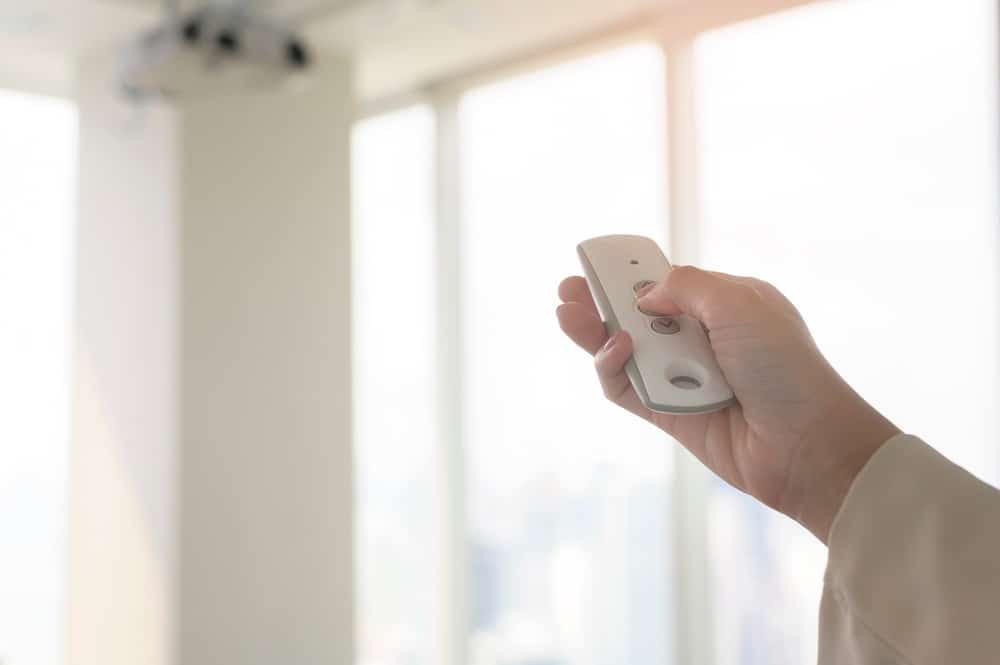
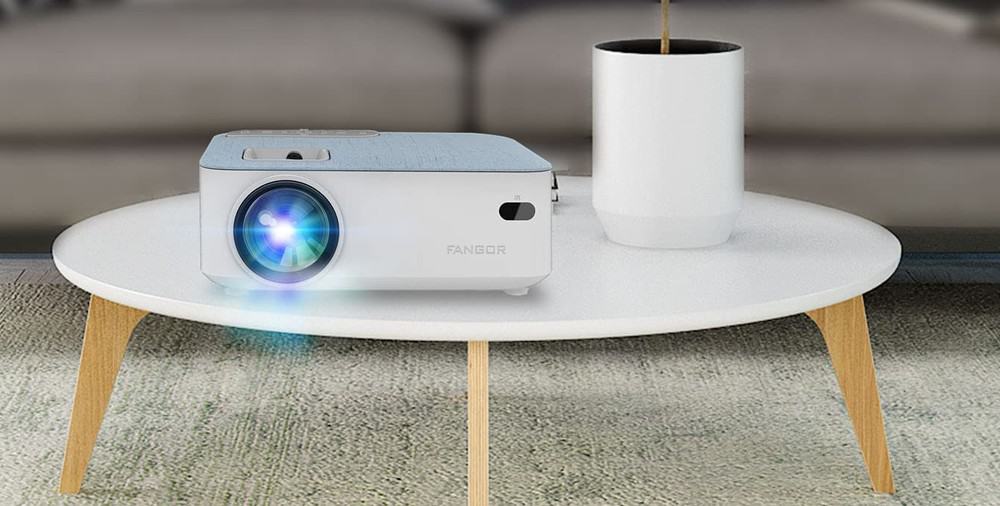
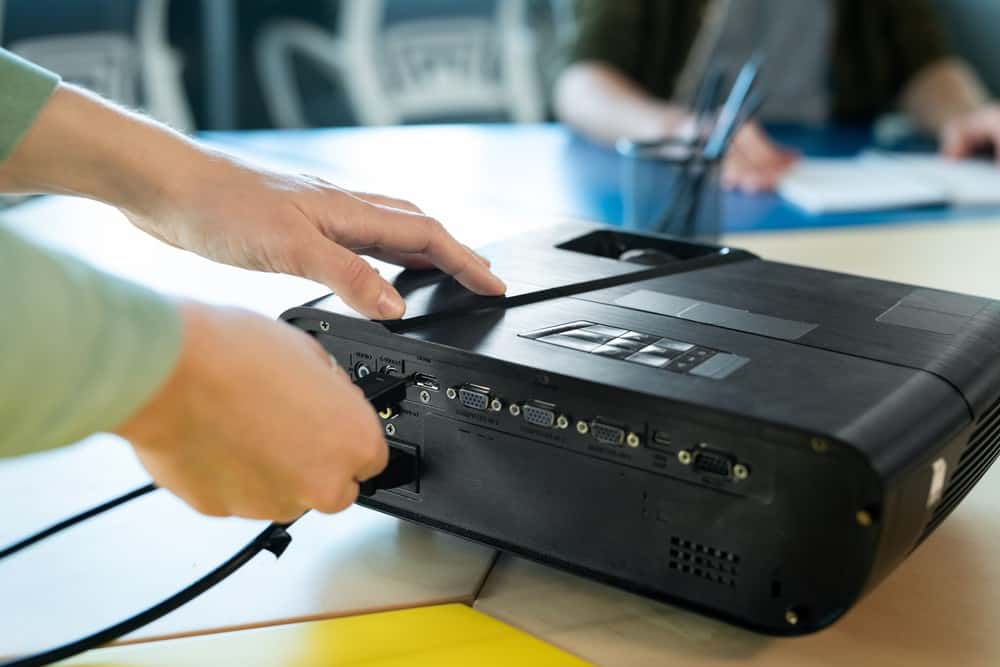
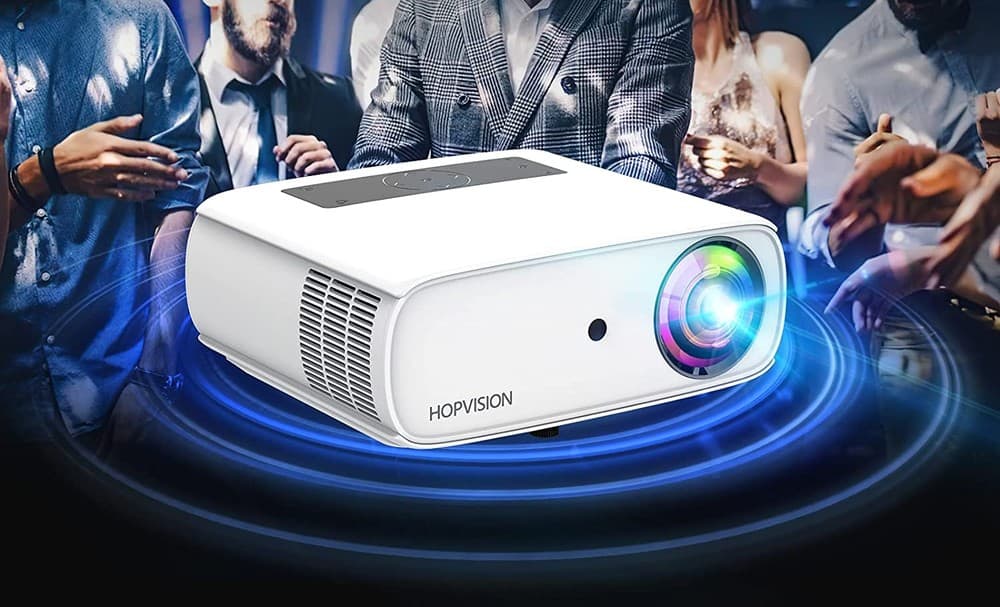

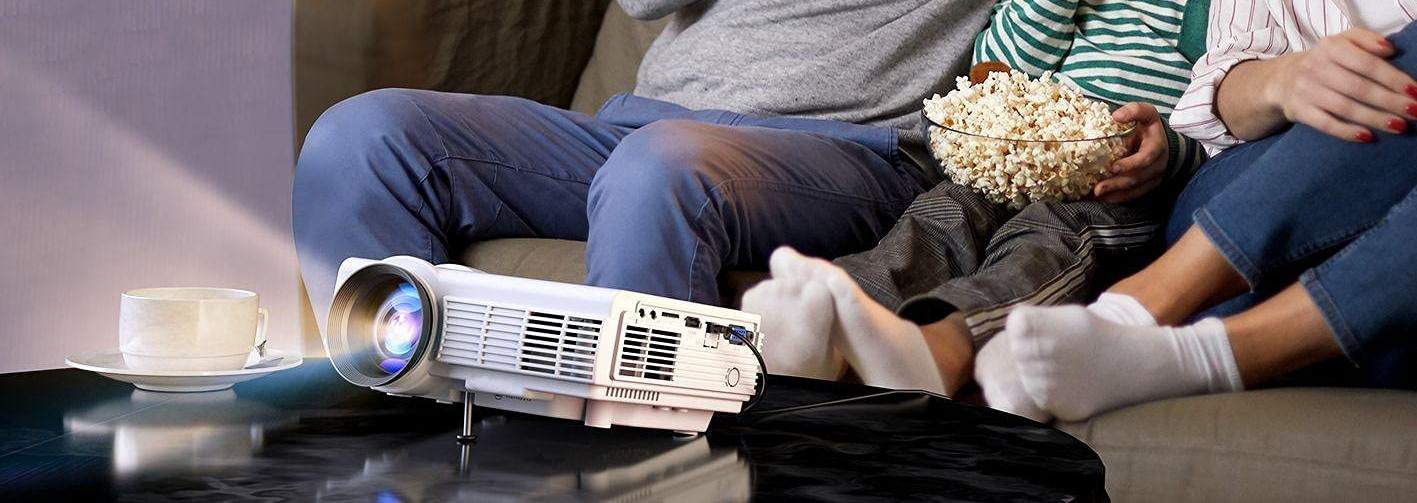
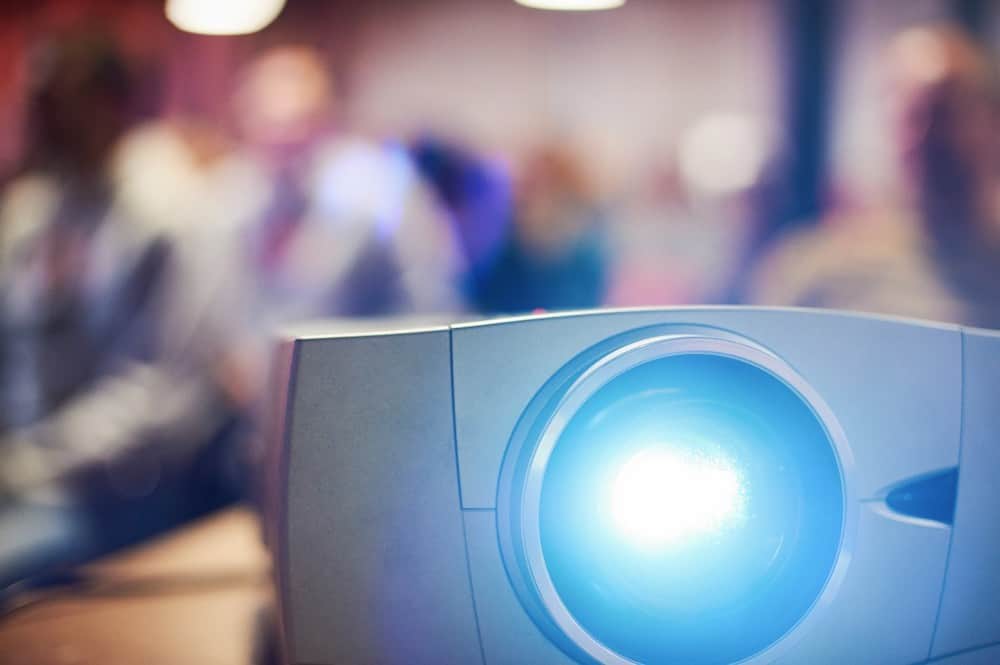
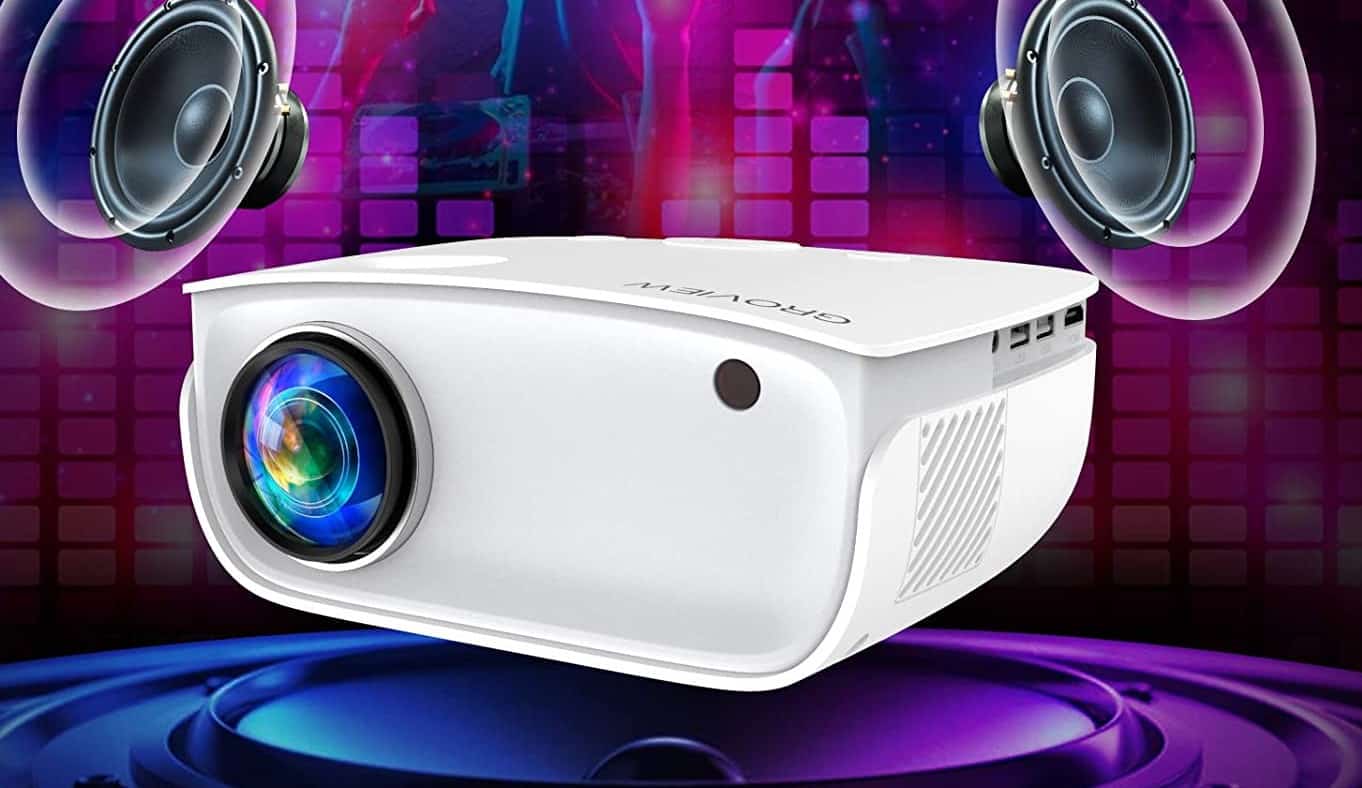
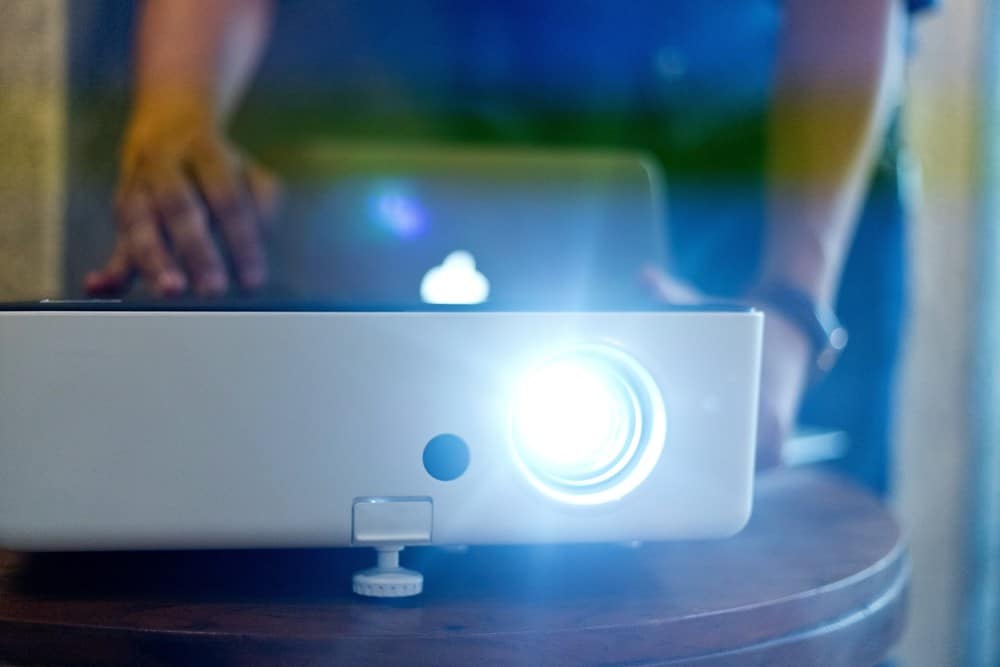

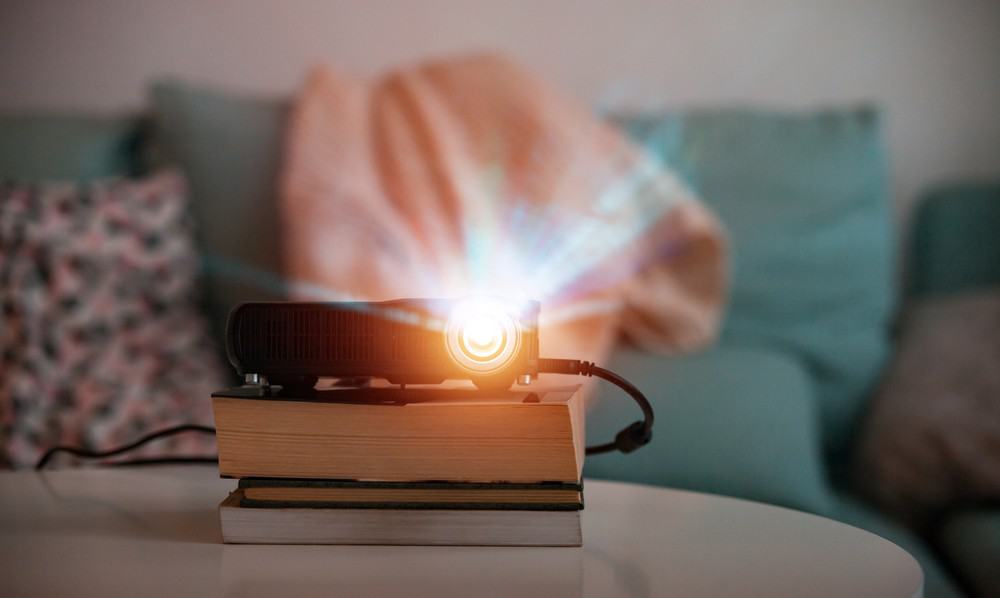
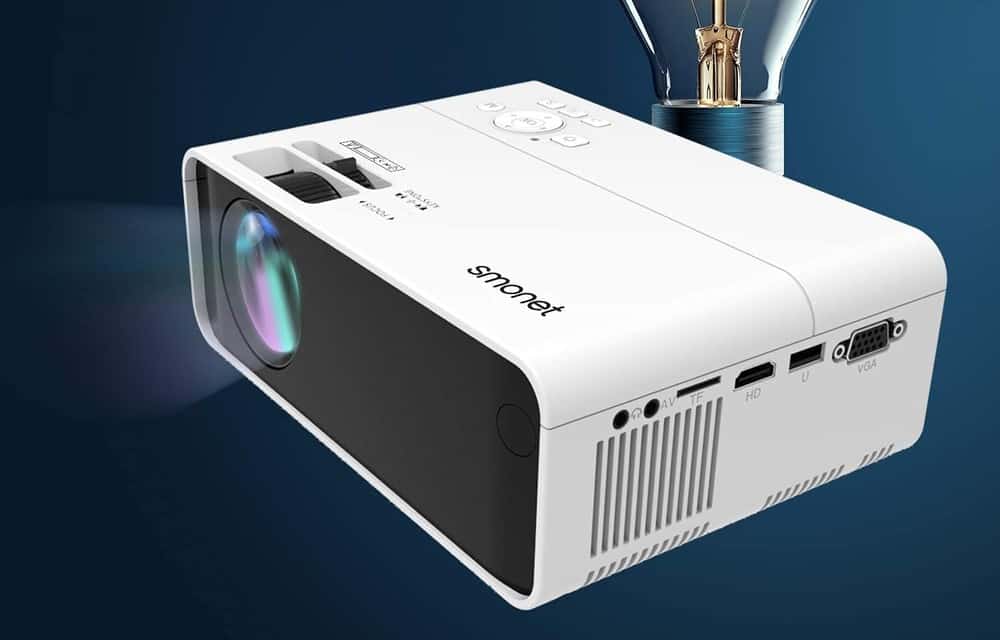
![Best Projectors for Daylight Viewing in [year] 27 Best Projectors for Daylight Viewing in 2026](https://www.gadgetreview.dev/wp-content/uploads/best-projector-for-daylight-viewing-image.jpg)
![Best Samsung Projectors in [year] 28 Best Samsung Projectors in 2026](https://www.gadgetreview.dev/wp-content/uploads/best-samsung-projectors-image.jpg)
![Best NEC Projectors in [year] 29 Best NEC Projectors in 2026](https://www.gadgetreview.dev/wp-content/uploads/best-nec-projectors-image.jpg)
![Best Acer Projectors in [year] 30 Best Acer Projectors in 2026](https://www.gadgetreview.dev/wp-content/uploads/best-acer-projectors-image.jpg)
![Best Quiet Projectors in [year] 31 Best Quiet Projectors in 2026](https://www.gadgetreview.dev/wp-content/uploads/best-quiet-projector-image.jpg)
![Best Projectors for Golf Simulator in [year] 32 Best Projectors for Golf Simulator in 2026](https://www.gadgetreview.dev/wp-content/uploads/best-projector-for-golf-simulator-image.jpg)
![Best Conference Room Projectors in [year] 33 Best Conference Room Projectors in 2026](https://www.gadgetreview.dev/wp-content/uploads/best-conference-room-projector-image.jpg)
![Best InFocus Projectors in [year] 34 Best InFocus Projectors in 2026](https://www.gadgetreview.dev/wp-content/uploads/best-infocus-projectors-image.jpg)
![Best Mini Projector in [year] ([month] Reviews) 35 Best Mini Projector in 2026 (January Reviews)](https://www.gadgetreview.dev/wp-content/uploads/best-mini-projector-image.jpg)
![Best Panasonic Projectors in [year] 36 Best Panasonic Projectors in 2026](https://www.gadgetreview.dev/wp-content/uploads/best-panasonic-projectors-image.jpg)
![Best Sony Projectors in [year] 37 Best Sony Projectors in 2026](https://www.gadgetreview.dev/wp-content/uploads/best-sony-projectors-image.jpg)
![Best Projector Stands in [year] 38 Best Projector Stands in 2026](https://www.gadgetreview.dev/wp-content/uploads/best-projector-stand-image.jpg)
![Best Ultra Short Throw Projectors in [year] 39 Best Ultra Short Throw Projectors in 2026](https://www.gadgetreview.dev/wp-content/uploads/best-ultra-short-throw-projector-image.jpg)
![Best Projectors for a Living Room in [year] 40 Best Projectors for a Living Room in 2026](https://www.gadgetreview.dev/wp-content/uploads/best-projector-for-living-room-image.jpg)
![Best RCA Projectors in [year] 41 Best RCA Projectors in 2026](https://www.gadgetreview.dev/wp-content/uploads/best-rca-projectors-image.jpg)
![Best Optoma Projectors in [year] 42 Best Optoma Projectors in 2026](https://www.gadgetreview.dev/wp-content/uploads/best-optoma-projectors-image.jpg)
![Best BenQ Projectors in [year] 43 Best BenQ Projectors in 2026](https://www.gadgetreview.dev/wp-content/uploads/best-benq-projectors-image.jpg)
![Best Projectors for Church in [year] 44 Best Projectors for Church in 2026](https://www.gadgetreview.dev/wp-content/uploads/best-projector-for-church-image.jpg)
![Best Projectors for Classroom in [year] 45 Best Projectors for Classroom in 2026](https://www.gadgetreview.dev/wp-content/uploads/best-projector-for-classroom-image.jpg)
![Best Epson Projectors in [year] 46 Best Epson Projectors in 2026](https://www.gadgetreview.dev/wp-content/uploads/best-epson-projector-image.jpg)
